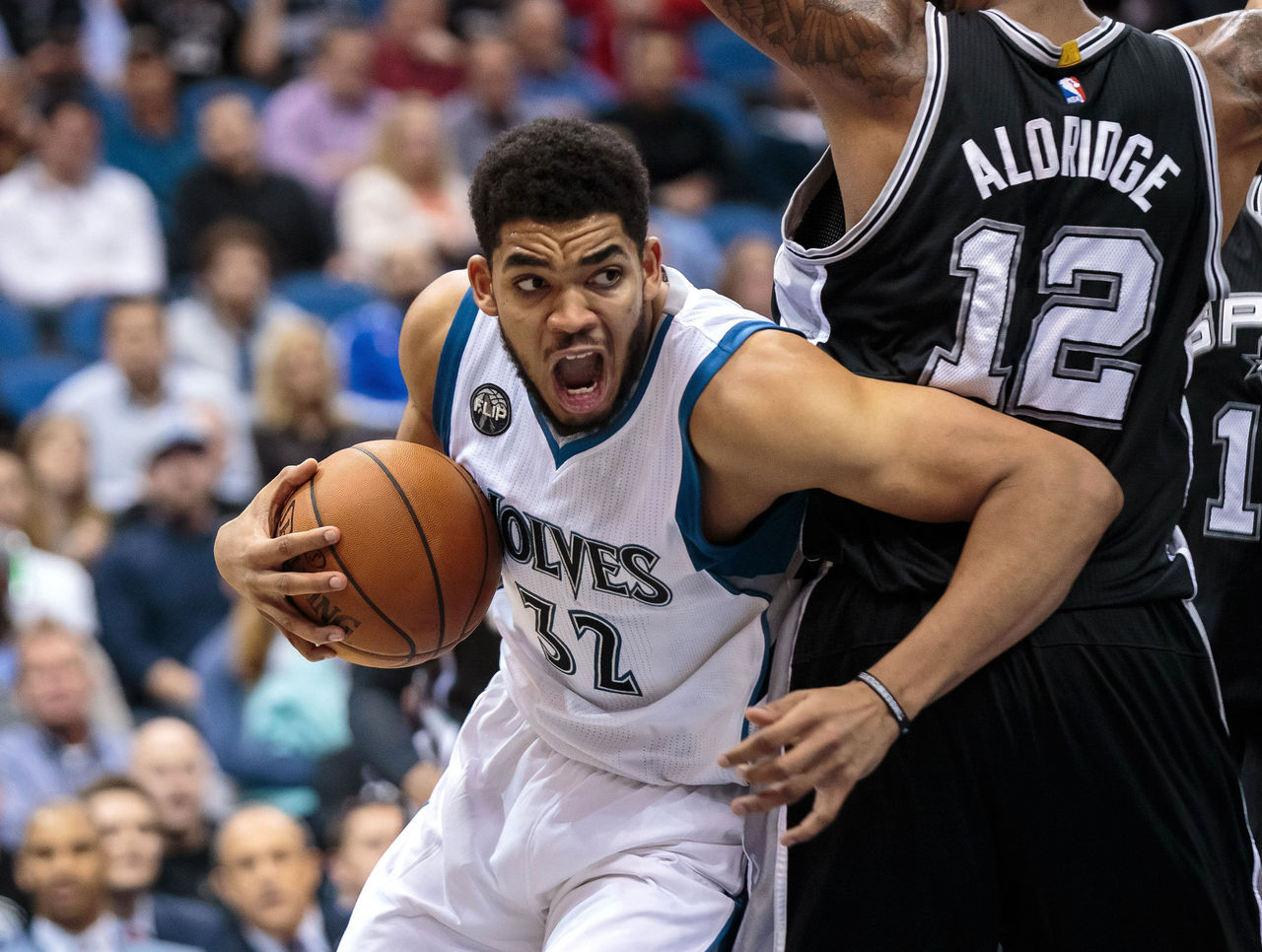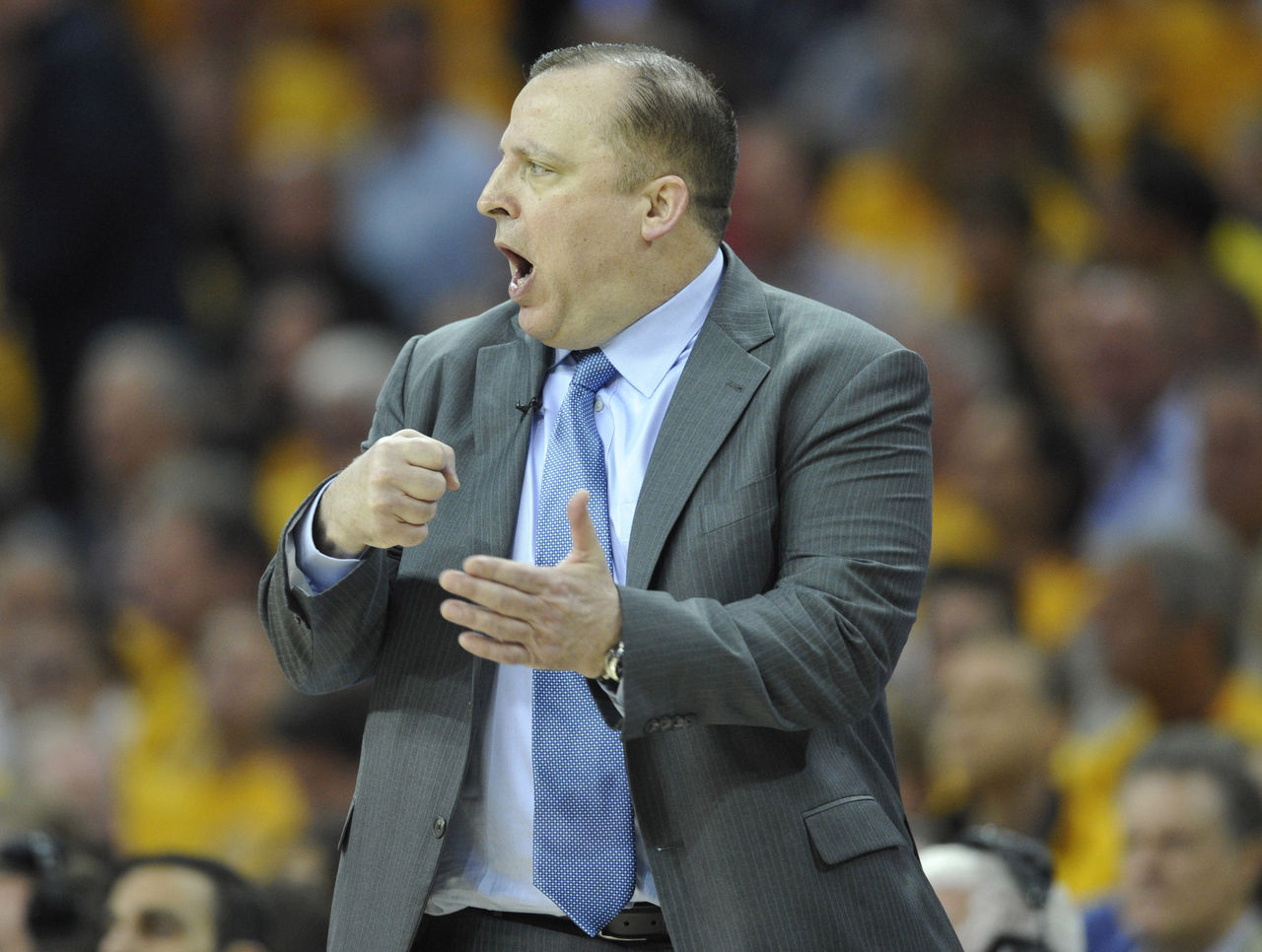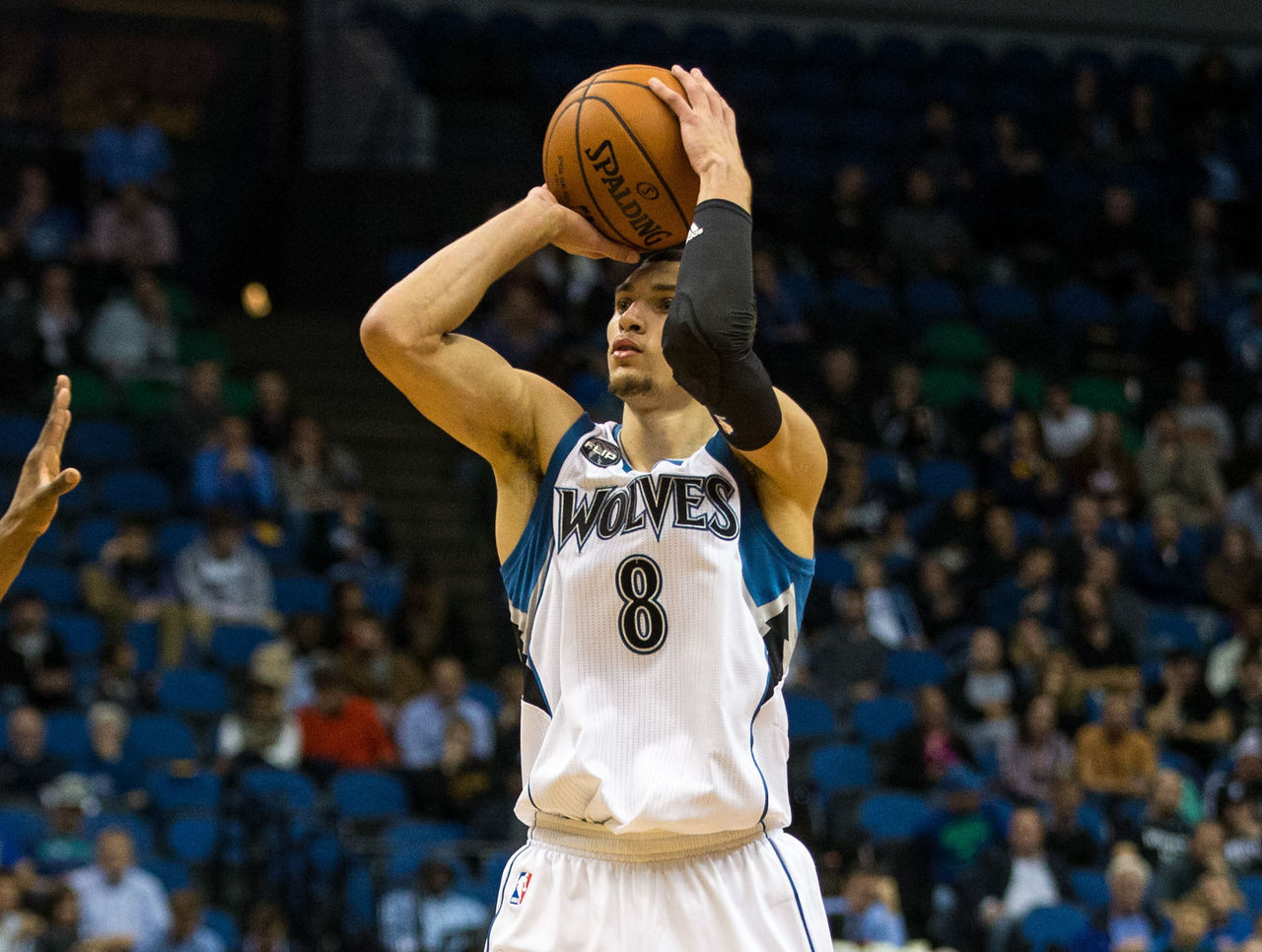How the Baby Wolves can reach the playoffs ahead of schedule
An intoxicating team-building fantasy blossomed at the start of this decade, when the Oklahoma City Thunder orchestrated perhaps the most successful bottom-out rebuild of the NBA's lottery era.
Over the course of three drafts, the Thunder assembled a staggering collection of exciting, young, homegrown talent - the likes of which hadn't been seen since at least the mid-90s Magic. Other teams looked at the blueprint and convinced themselves it was repeatable, with some taking the shoot-for-the-top-of-the-draft strategy to its logical extreme. The results have been mixed. No team has yet made much of anything from the lightning-in-a-bottle Thunder Model, but if any current squad could, it's the Minnesota Timberwolves.
The 2009-10 Thunder, powered by 21-year-old versions of Russell Westbrook and Kevin Durant, and buttressed by 20-year-old rookies Serge Ibaka and James Harden, cracked the West's playoff field as a vastly overqualified eighth seed, having jumped from 23 wins to 50 in just one year. This year's Wolves - led by 20-year-old Karl-Anthony Towns and 21-year-old Andrew Wiggins, supported by 21-year-old Zach LaVine, 22-year-old rookie Kris Dunn and comparatively ancient 25-year-old Ricky Rubio - are coming off a 29-win season, and could similarly find themselves on a steep upward trajectory, hitting the postseason ahead of schedule.
Like that Thunder squad, they're loaded with talent, growing together, and just starting to scratch the surface of their ability - as individuals and as a group. Here's what needs to happen for Minnesota to make a similar leap and reach the playoffs this season:
Towns becomes a top-10 player

Across the Wolves' promising roster, only one player is capable of carrying them in 2016-17. Wiggins, for all his raw ability, is still very much a work in progress, particularly at the defensive end. Rubio is a wizardly passer and an ace defender, but his lack of a jump shot continues to make him something of a liability. LaVine is a fireball of athleticism and an improving shooter, but hasn't yet harnessed his manic energy, and it may be another year before Dunn can meaningfully contribute. Towns' progress will determine how high the Wolves can climb.
In him, Minnesota has the outline of a Hall of Famer: a fleet-footed athlete, as graceful as he is tall, with soft hands and great loping strides. Towns can put the ball on the deck and bound his way to the rim, make plays in the open court, stretch defenses with his shooting range, and score from anywhere on the floor. His potential is almost frightening.
Towns was already approaching top-10 status by the end of his rookie season, averaging 20.8 points, 11 rebounds, three assists, and 1.4 blocks after the All-Star break. For him and the Wolves to take the next step, he'll need to improve as a passer, refine his back-to-the-basket game, and defend with more diligence and control.
The Defense gets the Thibs treatment

That last point is particularly pertinent, because the same can be said for the team as a whole. The Wolves had an above-average offense last season, but were undone by a leaky defense that bled points at the league's fourth-highest rate. They surrendered too many threes, fouled too eagerly, and got absolutely shredded in the restricted area.
It wasn't for lack of raw material - the Wolves are fast, athletic, and long. But they struggled, as young players tend to, with the nuances of team defense. Blown help assignments, bad gambles, late rotations, and miscommunications were hallmarks of the Wolves' D last season. The tools are there, but it's up to Minnesota and its coaching staff to make them work.
The good news is there's no better defensive handyman than Tom Thibodeau, who's overseen units that ranked first, first, second, fifth, and 11th in the NBA during five years as a head coach. He should have more than enough to work with here.
Towns' size, speed, and agility make him a potential anchor, with the ability to defend the 3-point line or drop back and control the paint. Wiggins' exceptional footwork should eventually allow him to live up to the defensive hype he earned as a prospect (and has shown flashes of in the pros). Rubio should continue his subtle brand of ball-hawking disruption, and Thibodeau will have the Wolves playing harder, more disciplined, more focused, and more cohesive.
They start digging the long ball

We know the Wolves can score. They finished 11th in offensive rating last season, largely because no team shot free throws at a higher rate. At the same time, no team got a lower share of its points from behind the arc. Minnesota shot threes sparingly, and shot them poorly.
Part of the problem was - and is - personnel. There are few natural shooters on the roster, and only LaVine and Nemanja Bjelica hit threes at an above-average clip last season. Dunn should be able to help, as will free-agent swingman Brandon Rush if he sees enough court time. And Wiggins improved his stroke as last season wore on, hitting 41.3 percent from deep after the break.
There's a give-and-take involved here. Wiggins is a foul magnet, and nearly every rotation guy - from Towns to Rubio to Shabazz Muhammad to Gorgui Dieng - got to the stripe at above-average rate. They're aggressive, and put the onus on defenses by relentlessly attacking the basket. You can understand why former coach Sam Mitchell didn't want to sacrifice that.
At the same time, with the way the league is trending, the Wolves will need to be more efficient - if not more prolific - from long range. Even a team so expert at drawing contact will struggle to score when opposing defenses clog the paint without regret. They have a point guard in Rubio who can get anyone the ball anywhere on the floor, the kind of facilitator who can turn average shooters into good ones. The Wolves don't need to center their offense around the 3-point line, but they need it to be a more viable weapon.